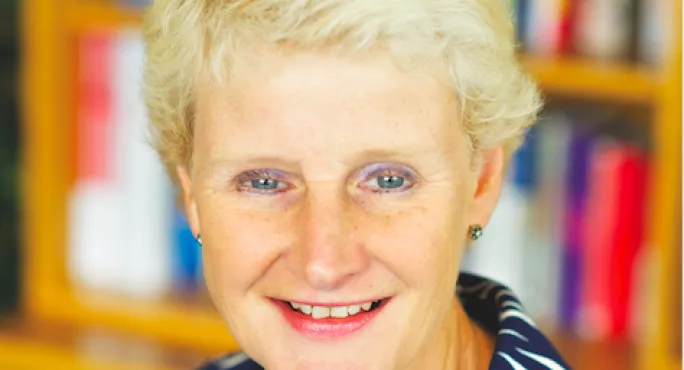The next FE commissioner: What I know about leadership

As I reflect on my career in further education, some common themes emerge. The importance of continuous learning and improvement, creating a culture of collaboration, empowering staff and listening to students’ feedback have all been integral to my approach.
My journey to further education started through a non-teaching route. I served in the army in a variety of postings, including joining an artillery regiment, before pursuing accountancy and working in an investment bank, a local university, and then Chichester College, which I joined in 2003 as the chief financial officer.
One of the things that struck me upon joining the college was an implicit assumption that good teachers could transition to managing a department without additional development and training. I, therefore, worked to set up a development programme for senior managers, which included the use of 360-degree appraisals, psychometric testing and management training. It proved to be a game-changer and demonstrated the importance of continuous learning and improvement as essential components of a successful college.
The Duke of Edinburgh: What his life can teach our students
Need to know: Who is Shelagh Legrave?
New FE commissioner: Principal Shelagh Legrave appointed
I was then appointed as principal in 2009, becoming only the fourth person to hold the post since 1964. There have been several core principles that have informed my approach to the role.
Developing a quality process for FE colleges
A key focus has been on developing an easily implementable quality process. The development of transparent quality systems was essential in achieving an Ofsted “outstanding” grade in 2014. We developed a process that strikes a balance between providing a framework to ensure consistency across teaching and allowing teachers to innovate in the classroom. We introduced new methods like ungraded lesson observations and a licence to observe, which won the Beacon Award in 2015. This focus on quality, combined with the flexibility to innovate, has been vitally important.
Student voice
Secondly, listening to the voice of students is invaluable to improve the quality of education. Some of the changes we made included introducing a sabbatical position for student union president, which significantly increased student engagement. We also introduced a student committee chaired by a college governor, and involved students in lesson observations. These measures have proved crucial to get continual feedback from students and ensure they remain at the heart of everything we do.
A strong culture
Thirdly, it has been vital to establish a strong culture in which the college’s vision and values are embodied in all aspects of the college. It has been critical to foster a collaborative leadership culture and win hearts and minds towards a vision that everyone understands. A leader in further education needs to empower their leadership team, and staff must not fear failure. Heroic leadership has no place in large organisations, and it is not suitable for sustainability or succession planning.
‘It is critical to get the basics right’
A great deal has changed since I first joined the further education sector. The Chichester College Group now comprises five colleges, and the opportunities that come with being part of a larger group are evident. We have found that our size has helped us to have more strategic conversations with colleagues across the government and key stakeholders across our regional economy. It is clear, though, that regardless of the institution’s size, it is critical to get the basics right. As new colleges have come into the group, it has been inspiring to see how by focusing on quality improvement, students’ voice and creating an inclusive, empowered and learning-driven culture, rapid improvements can be made.
There are, of course, challenges, but working in the further education sector has been a fantastic experience, and I am continually inspired by the dedicated and brilliant work of colleges to serve their local communities and transform people’s lives.
Shelagh Legrave is currently principal and chief executive of Chichester College and is due to take up the role of FE commissioner in October 2021. This blog is part of a series based on talks given to the Collab Group Leadership Programme.
You need a Tes subscription to read this article
Subscribe now to read this article and get other subscriber-only content:
- Unlimited access to all Tes magazine content
- Exclusive subscriber-only stories
- Award-winning email newsletters
Already a subscriber? Log in
You need a subscription to read this article
Subscribe now to read this article and get other subscriber-only content, including:
- Unlimited access to all Tes magazine content
- Exclusive subscriber-only stories
- Award-winning email newsletters